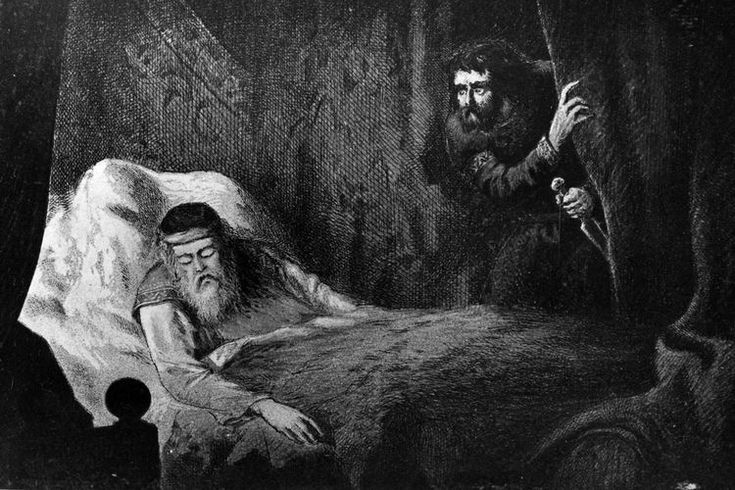Macbeth's Ruthless Pursuit of Power

In William Shakespeare's Macbeth, ambition takes center stage, causing issues for the main character, Macbeth. Picture Macbeth as a courageous Scottish soldier. When all of a sudden, three witches appear upon Macbeth, telling him he's destined to be king. He becomes filled with ambition due to the witches' predictions, prompting him to consider engaging in questionable actions to secure the position of king for himself. His wife, Lady Macbeth, actively pushes him towards making problematic decisions. As a result, Macbeth's ambition begins to play tricks on his mind, causing him to experience hallucinations and overwhelming guilt.
Macbeth's Ambition
In the play, we notice that wanting too much can cause serious trouble. Many innocent people, including King Duncan, lose their lives, and Macbeth, who used to be a good person, turns into a harsh ruler. It was a significant downfall in his life.
What's crucial is that Shakespeare doesn't allow Macbeth or his wife to relish in their gains – perhaps suggesting that it's more rewarding to attain success through fair means rather than resorting to wrongdoing.
Macbeth desires power for various reasons. While the aspiration to climb the social ladder is one aspect, it's not the sole driver behind his descent into criminal actions. External factors significantly influence his intense desire for it.

The Predictions:
Witches predict Macbeth's future as a king. Macbeth consistently trusts their prophecies and acts accordingly, such as deciding to eliminate Duncan and Banquo. The witches' predictions unfailingly materialize, yet it remains uncertain whether these events were destined to occur or if Macbeth executes them solely because he heeds the witches' counsel.
Lady Macbeth:
While the witches may have initiated Macbeth's contemplation of power, it is his wife who becomes the primary rebel of his deeds. Lady Macbeth consistently encourages him to set aside feelings of guilt and concentrate solely on attaining kingship, dismissing any moral doubt associated with their actions.
Macbeth's tale serves as a cautionary reminder about the perils of excessive desire. His ambitions lead to a catastrophic event, such as the death of King Duncan, prompting reflection on how to pursue goals without causing harm. The play prompts us to contemplate achieving a balance between ambitious aspirations and responsible actions. Through Macbeth's journey, Shakespeare attempts to impart a profound lesson about the hazards of ambition and the importance of maintaining moral integrity while pursuing our dreams.
Comments